
- 18 Jul 2023
- Research & Ideas
Will Global Demand for Oil Peak This Decade?
The International Energy Agency expects the world's oil demand to start to ebb in the coming years. However, Joseph Lassiter and Lauren Cohen say the outlook will likely be more complex, especially as poor and fast-growing regions seek energy sources for their economies.
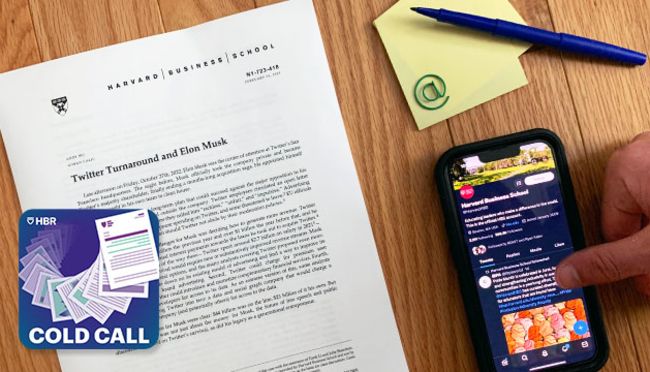
- 20 Jun 2023
- Cold Call Podcast
Elon Musk’s Twitter Takeover: Lessons in Strategic Change
In late October 2022, Elon Musk officially took Twitter private and became the company’s majority shareholder, finally ending a months-long acquisition saga. He appointed himself CEO and brought in his own team to clean house. Musk needed to take decisive steps to succeed against the major opposition to his leadership from both inside and outside the company. Twitter employees circulated an open letter protesting expected layoffs, advertising agencies advised their clients to pause spending on Twitter, and EU officials considered a broader Twitter ban. What short-term actions should Musk take to stabilize the situation, and how should he approach long-term strategy to turn around Twitter? Harvard Business School assistant professor Andy Wu and co-author Goran Calic, associate professor at McMaster University’s DeGroote School of Business, discuss Twitter as a microcosm for the future of media and information in their case, “Twitter Turnaround and Elon Musk.”

- 23 May 2023
- Research & Ideas
Lessons on Life, Graffiti, and Value: 'It's in That Darkness That You Can Actually Develop and Evolve'
The art world has only recently started to place value on graffiti, but for James Riley, the craft's contribution to his life has been indelible. He reflects on his youth in Los Angeles, his art, and his research.
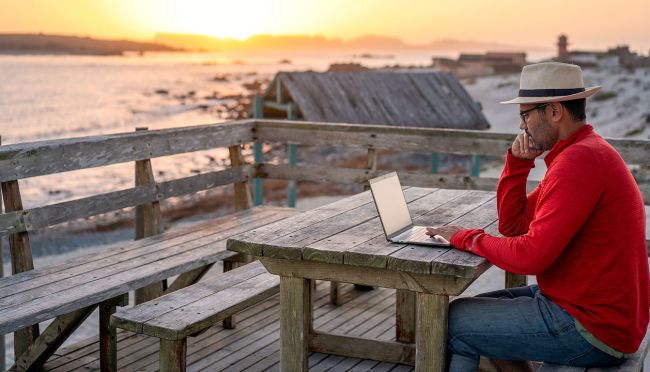
- 09 May 2023
- Research & Ideas
Where to Find Remote Work Now: 250 Million Job Postings Paint a Complex Picture
While many companies let employees work remotely during the height of COVID-19, conditions have since become more nuanced, according to research by Raffaella Sadun and colleagues. What do these shifts mean for talent managers?
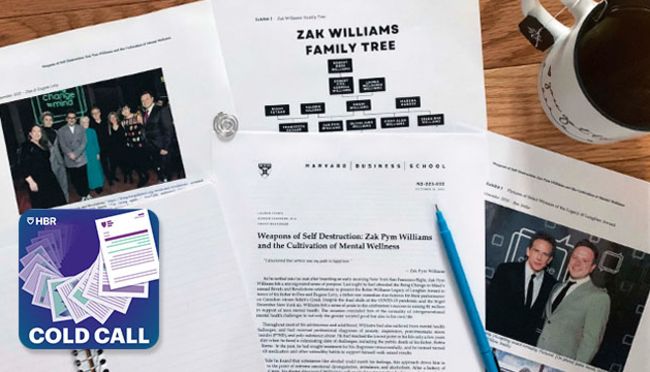
- 09 May 2023
- Cold Call Podcast
Can Robin Williams’ Son Help Other Families Heal Addiction and Depression?
Zak Pym Williams, son of comedian and actor Robin Williams, had seen how mental health challenges, such as addiction and depression, had affected past generations of his family. Williams was diagnosed with generalized anxiety disorder, depression, and post-traumatic stress disorder (PTSD) as a young adult and he wanted to break the cycle for his children. Although his children were still quite young, he began considering proactive strategies that could help his family’s mental health, and he wanted to share that knowledge with other families. But how can Williams help people actually take advantage of those mental health strategies and services? Professor Lauren Cohen discusses his case, “Weapons of Self Destruction: Zak Pym Williams and the Cultivation of Mental Wellness.”
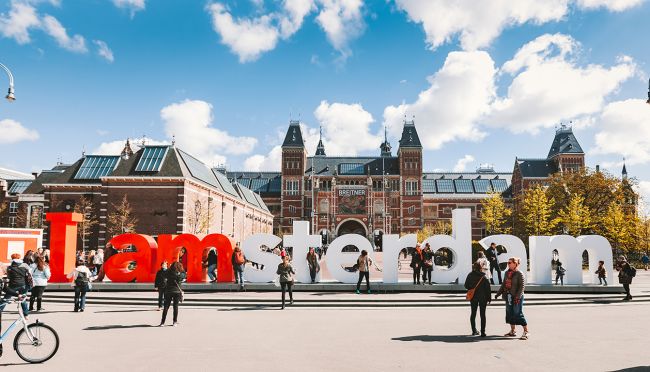
- 11 Mar 2019
- Research & Ideas
Branding Sells Cereal, Handbags, and Vacations. Can It Sell a Country?
Countries such as Israel now realize they need to engage in public diplomacy as well as foreign diplomacy, and in place branding, not just political advocacy, says Elie Ofek. Open for comment; 0 Comments.
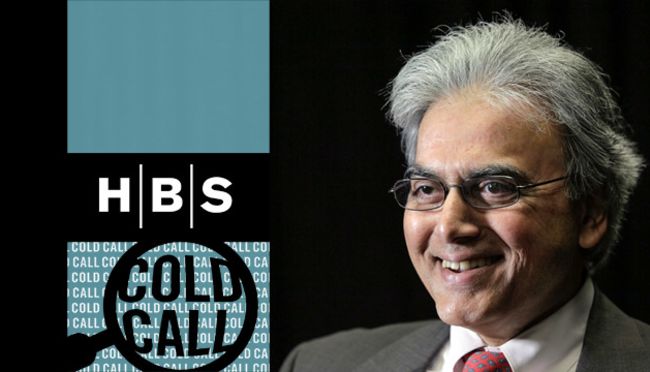
- 28 Jun 2018
- Cold Call Podcast
L.A. Philharmonic Shows the American Symphony Orchestra Isn’t Dead Yet
Like many American symphony orchestras, the Los Angeles Philharmonic seemed dying on the vine, unable to attract younger audiences or new sponsors. Then new CEO Deborah Borda came aboard with a plan to revive the brand. Rohit Deshpande discusses his case study on the turnaround. Open for comment; 0 Comments.

- 18 Jun 2018
- Research & Ideas
Warning: Scary Warning Labels Work!
If you want to convince consumers to stay away from unhealthy diet choices, don't be subtle about possible consequences, says Leslie John. These graphically graphic warning labels seem to do the trick. Open for comment; 0 Comments.
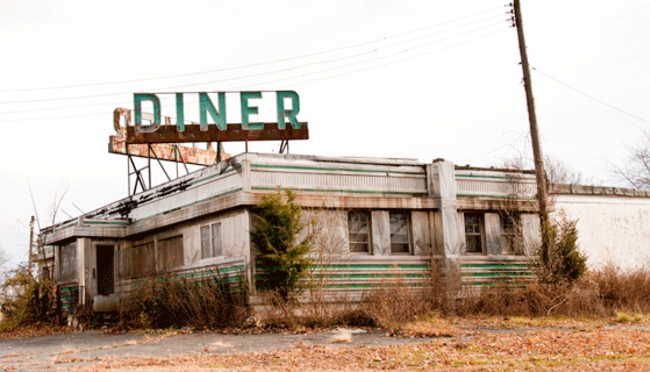
- 28 Jun 2017
- Research & Ideas
Minimum Wage Hikes Drive (Lousy) Restaurants Out of Business
Do minimum wage increases harm businesses? Evidence from Yelp-inspired research by Michael and Dara Lee Luca suggests the popularity of the business has a lot to do with it. Open for comment; 0 Comments.

- 05 May 2017
- Working Paper Summaries
Survival of the Fittest: The Impact of the Minimum Wage on Firm Exit
This study examines the impact of minimum wage increases on restaurant closures in the San Francisco Bay Area, using data from 2008 through 2016 from the review platform Yelp. The study demonstrates that higher minimum wages increase closure rates among lower-rated restaurants, while higher-rated restaurants are largely insulated from changes.

- 22 Feb 2017
- Working Paper Summaries
Incentives, Peer Pressure, and Behavior Persistence
Organizations often create initiatives to encourage adoption of new behaviors, or to stimulate performance improvements from existing practices. This research explores whether and how incentivized behaviors at a California hospital persist beyond the duration of the initiative.
- 06 Apr 2016
- Research & Ideas
Should Entrepreneurs Pitch Products or Ideas for Products?
Entrepreneurs with a new product idea must decide whether to pitch the concept or provide an actual prototype. Which works best? Professor Hong Luo finds answers in Hollywood screenplays. Open for comment; 0 Comments.
- 22 Feb 2016
- Research & Ideas
The ‘Mother of Fair Trade’ was an Unabashed Price Protectionist
Historian Laura Phillips Sawyer unearths the story of little-known drug store owner Edna Gleason who, in a man’s world, helped fire a progressive movement to protect small-business owners from price-slashing chains. Open for comment; 0 Comments.

- 25 Jan 2016
- Working Paper Summaries
Racial Discrimination in the Sharing Economy: Evidence from a Field Experiment
Online platforms such as Airbnb create new markets by eliminating search frictions, building trust, and facilitating transactions. With the rise of the sharing economy, however, comes the prospect of racial discrimination that is unheard of in established platforms. The authors suggest changes to Airbnb’s site design to reduce or prevent discrimination.

- 19 Nov 2015
- Working Paper Summaries
The US Experiment with Fair Trade Laws: State Police Powers, Federal Antitrust, and the Politics of 'Fairness', 1890–1938
In a study of California retail druggists at the turn of the twentieth century, Laura Phillips Sawyer, finds that price-fixing counterintiutively increased competition.
- 17 Feb 2015
- HBS Case
HBS Cases: The Battle for San Francisco
In San Francisco, tech companies are hoping to make the world a better place—but the fabric of the city is changing in the process. A new case by Clayton Rose explores this clash of cultures, and the role of business in promoting the right balance. Open for comment; 0 Comments.

Are Virtual Tours Still Worth It in Real Estate? Evidence from 75,000 Home Sales
Many real estate listings still feature videos and interactive tools that simulate the experience of walking through properties. But do they help homes sell faster? Research by Isamar Troncoso probes the post-pandemic value of virtual home tours.